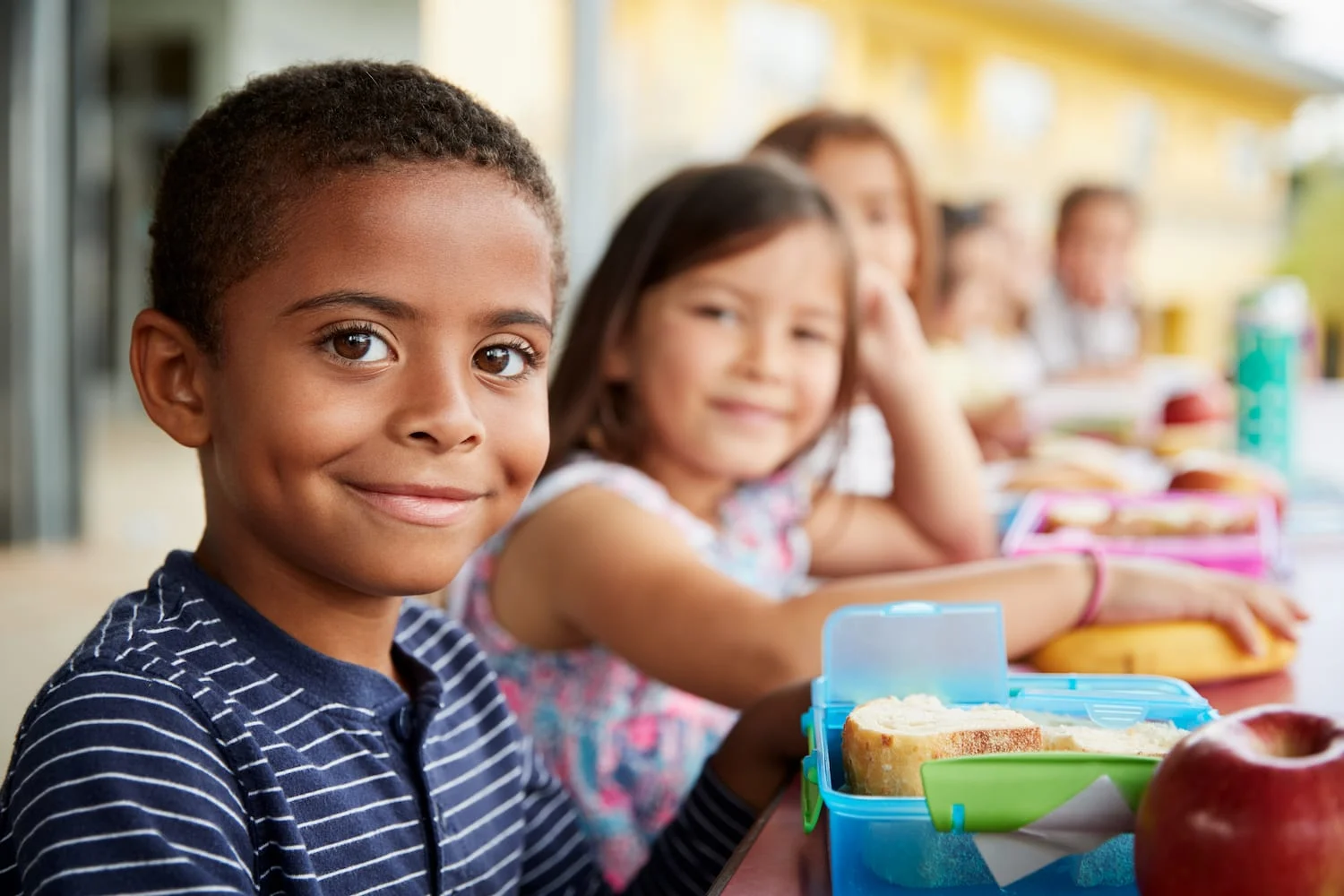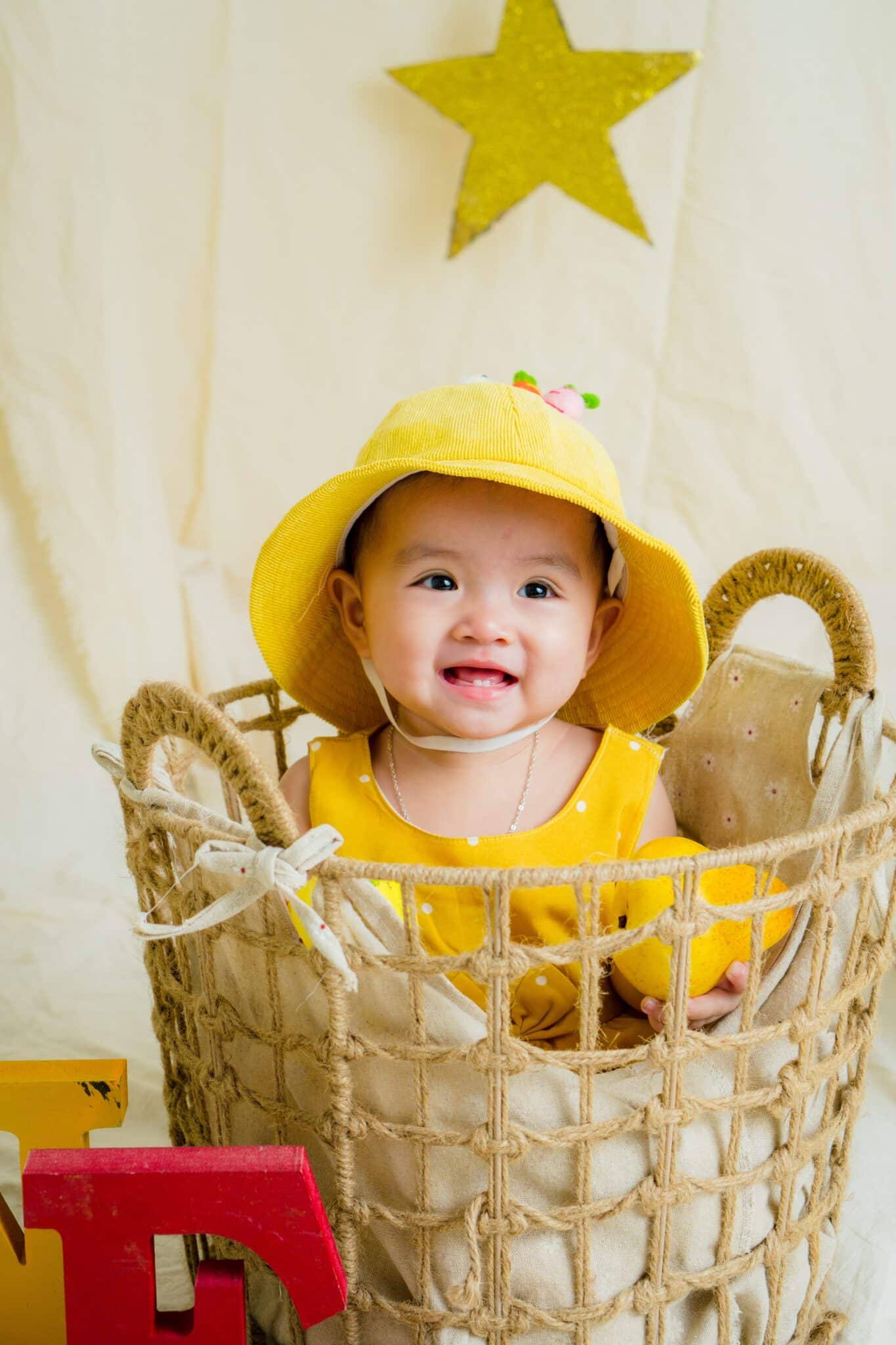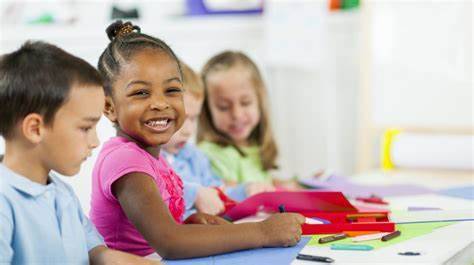There are many things to look forward to in kindergarten, including new friends, new abilities, and nonstop fun! To prepare for your child’s first day in kindergarten, there’s much to accomplish.
It’s normal for your little one to be worried about leaving home and finding friends. Being anxious is normal. Before the big day, you want your child to behave their best. Help them relax before the first day of school so they can put their best foot forward while meeting new friends.

But First, is Your Child Ready for Kindergarten?
What is taught in kindergarten? Kindergarten focuses on fundamentals like letter recognition, math abilities, and social and emotional development.
Your child may have mastered the ABCs by age two, but you worry about their capacity to share with friends without throwing a fit. On the other hand, you’re assured of your child’s social abilities, yet you’re concerned about their capacity to sustain concentration.
Your child’s readiness for kindergarten success depends on three main factors:
- Academic Readiness
Your kid should be able to do basic skills, including following multiple-step instructions, counting to ten, and identifying letters, before starting kindergarten. Their preschool education will be the foundation for their experience in this first formal school year.
2. Emotional and Mental Capacity
It’s necessary to be socially and emotionally prepared for school. Your child must learn how to share, listen to others, control their emotions, and listen to the teacher and, ideally, their friends.
3. Age Range
There’s a reason why kindergarten begins at age 5. Kids have outgrown toddlerhood at this age and are more socially conscious, sophisticated, and eager to play with their friends. They may balance engaging in childlike play with being still for teaching.
Although full-day kindergarten isn’t legally required in every state, starting school at a specific age—5, 6, or 7—is.
Readiness Testing or Kindergarten Screening
Some schools provide school readiness assessments to gauge aptitude. Most “readiness tests” focus on academic abilities, although they also assess other areas of development.
The assessments are far from ideal; some students who perform poorly on them still perform well in class.
Therefore, if the test or screening reveals any areas where your kid appears to be falling behind, utilize the data to assist you and the school in planning for any additional support he might require in the upcoming kindergarten year.
Signs that Your Child isn’t Ready for Kindergarten
Children entering kindergarten should have learned several abilities or come very close to learning them. For instance, your child can do self-help tasks like using the restroom and dressing themselves.
Your child can also briefly focus on the teacher and communicate with their classmates. Nevertheless, here are some of the indicators that your child isn’t ready for kindergarten.
Your child can’t do age-appropriate tasks.
Your little one is still too young to do tasks appropriate to his age or ask for help if needed. They must be capable of using the restroom on their own, using utensils at lunch, and putting on a coat in cold weather.
If your child doesn’t, his teacher will eventually have to complete these activities on their behalf, slowing down class teaching overall.

Your child has behavioral problems.
Your kid frequently loses control when angry, breaks down when upset, or engages in violent squabbles with classmates. Young children are bound to exhibit some behavioral issues, but extreme hostility threatens their classmates’ safety in the classroom.
Before you send your child to kindergarten, you should discuss the possible causes of your child’s behavior with your primary healthcare physician.
Your child is very distracting and hyperactive.
When your child is bored, they become hyperactive or unruly in class or try to divert attention from others. If given an extra year, socially immature kids frequently catch up. In short, a little kindergartener who loves disturbing others most likely isn’t dealing with a serious issue.
Your child has ADHD or autism.
Attention-deficit hyperactivity disorder (ADHD) and/or autism are developmental disorders that severely impair your child’s ability to focus and stay still in class.
These kids can join a traditional kindergarten, although they require additional support, such as specialized teaching during the school day.
Delaying entry into kindergarten will make kids with special needs happier and help them learn better. However, experts often advise that kids with developmental or mental health issues arrive at school on time alongside their peers.
Preparing Your Tiny Tot for the Big K!
On the big day, students must know certain fundamental abilities, such as handling a pencil and writing their first name. Developing other abilities, such as composing short phrases using sight words, will take time.
Skills to Prepare
Children are expected to develop excellent pre-reading abilities, practice letter formation, improve their listening and communication skills, learn fundamental arithmetic concepts, and develop a keen interest in the world.
Here are some skills you need to brush up on with your child when preparing for kindergarten.
- Familiar with common school stuff like glue, scissors, paint, and others.
- Hold a pencil, pen, or crayon properly.
- Hold a book properly and turn its pages.
- Identify objects based on shape, size, quantity, etc.
- Counting up to 10.
- Know some of the letters of the alphabet, vowels, and consonants.
- Recite and write his full name and birthday in both uppercase and lowercase.
- Know the parts of the body.
- Memorize the days, weeks, and months of the year.
- Listening skills without interrupting the speaker.
- Rhyming skills.
- Do multiple steps according to the instructions.
- Raise hands to bring up a question or have to say something.
- Social skills with peers.
- Clean themselves on their own.
- Dress up independently.
- Going to the bathroom on their own.
- No separation anxiety, especially from parents.
Health is Wealth: Smooth Transitioning to Kindergarten
Health is linked to academic preparation long before a kid enrolls in school. Healthy development during childhood and later in life is beneficial to learning. So to ensure that your child is prepared in terms of health, take note of the following:
- Physical Health
Have regular pediatric visits from your primary healthcare provider, such as Omega Pediatrics, to ensure your child is fit and healthy for school.
- Oral Health
Let your child practice daily oral hygiene and visit the dentist regularly.
- Good Nutrition
Provide your kid with healthy meals and snacks for proper early childhood development.
- Physical Activities
Encourage your child to participate in sports for a more active and healthy lifestyle.
- Sleep
Ensure your child gets enough sleep with a proper sleep schedule so that they won’t have difficulty waking up for school.
- Senses
Let your child have sensory screenings, such as hearing and vision tests, if they need eyeglasses or hearing aids.

What are Your Choices?
Parents frequently face an overwhelming number of decisions that might impact the future of their children. However, the date of your child’s enrollment in kindergarten is unlikely to impact their future negatively.
Ensure that your child is prepared for kindergarten and that they don’t start school too early. If not, they may have to repeat the whole school year. Think about your options for enrolling your kid in school when they are 5 or nearly 5 years old.
1. Early education: Start kindergarten early
A youngster under the age of five is rarely adequately prepared for kindergarten. If you believe your kid is prepared, consider whether their social-emotional development is comparable to that of their other classmates.
A nearly 5-year-old with a summer birthday who is emotionally and cognitively competent for their age and meets the other requirements may be prepared for kindergarten.
2. Wait for your child to reach the right age
Most states have a mandatory attendance age of either 5 or 6; most kindergarteners are 5 when the school year begins and turn 6 somewhere during the next 12 months. Starting early is the best option for most children, who are usually developing.
3. Delay kindergarten or redshirting
“Redshirting” refers to college athletes who begin practice a year earlier than their official games. In kindergarten, it refers to letting your child wait for another year, whether for academic reasons or not.
Since they are older than most of their classmates, children who postpone kindergarten by a year may frequently pay attention better and learn more rapidly than their peers.
However, the AAP asserts that postponing the start of school and designating kids as “not ready” for kindergarten might keep them out of the most conducive learning environment. Most of these issues go away by the third or fourth grade.

Prepare a Well-Performing Kindergartener
You might be excited to enroll your child in kindergarten—especially for new parents. Think thoroughly before making this huge leap. Ensure that your little one is prepared to step on this new milestone in his life!
If you’re ready to send your child to kindergarten, brush up on his health, academics, social skills, and behavior so that when the school year comes, he won’t have a hard time!
Your provider at Omega Pediatrics would be more than happy to assist you and your child in this important parenting decision. Book an appointment with us!



